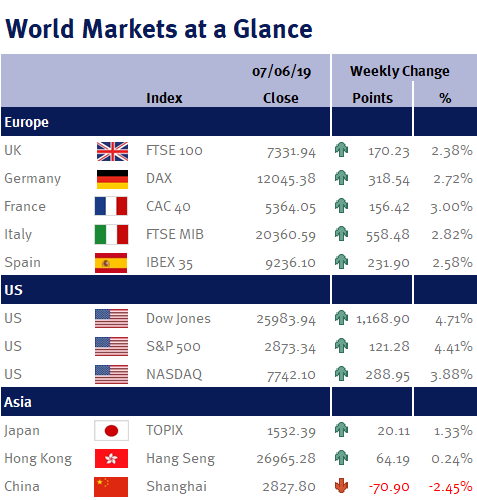On a positive note, this trade friction is likely to spur the Fed into cutting US interest rates!
It was a light week for economic data releases. Of most interest was the second release on US Q1 GDP, which was revised down very slightly to 3.1% from 3.2%, while the Fed’s favoured inflation measure, the core PCE for April came in at 1.6% – below their 2% target, which again suggests that US interest rates have peaked and it is only a matter of time before the Fed starts cutting US interest rates.
In the UK, the pound weakened slightly over the week as the market digested the results of the European elections. While the Brexit uncertainty will continue, given both the pro-Brexit and pro-European parties did well, the results of the election suggests to us that Tory MPs are more likely to accept a no-deal Brexit than a general election.
This all suggests that the next move in UK interest rates will be down, despite the fact that it was only a month ago that Mark Carney, the BoE Governor, raised growth forecasts and signalled that UK interest rates are likely to rise.
We have another reasonably quiet economic calendar week ahead. Friday’s (7 June 2019) US employment data (non-farm payrolls; unemployment rate; the participation rate; and average earnings) is the week’s key economic event. We also have the Eurozone CPI and Q1 GDP along with an ECB monetary policy meeting.
Investment Management Team


